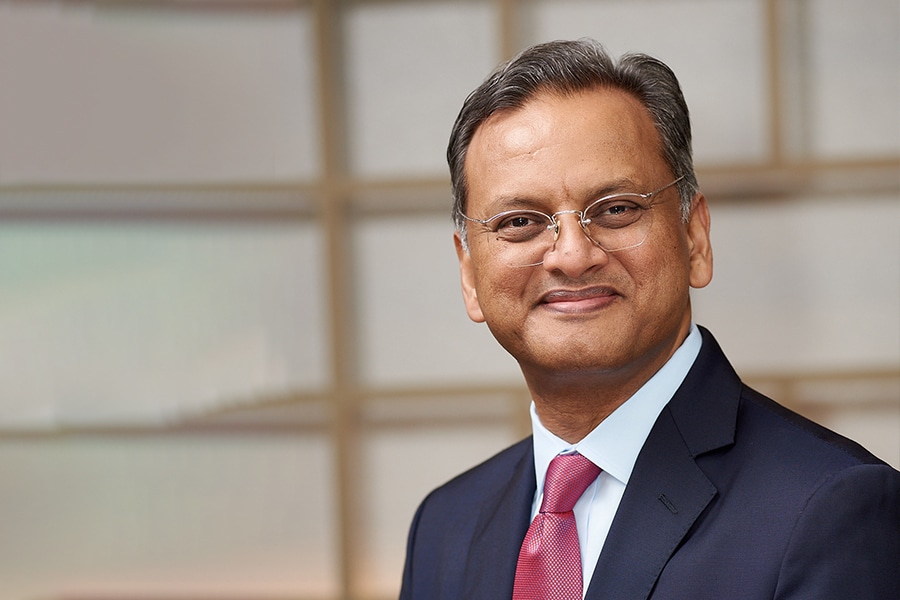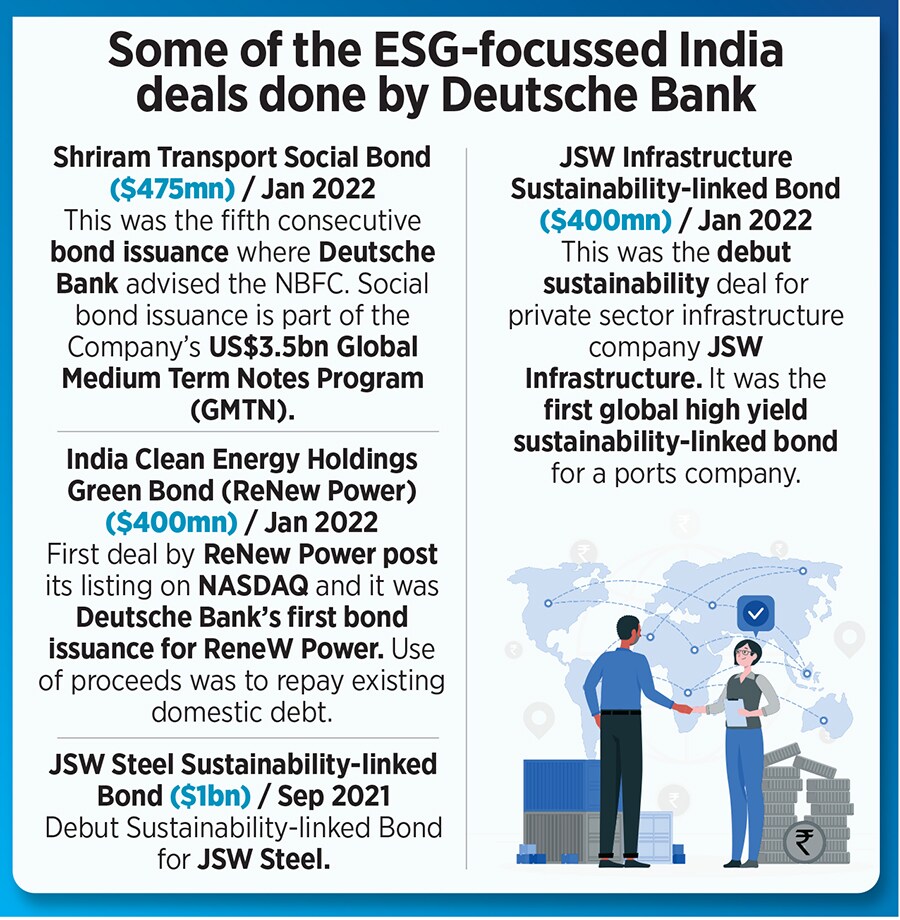
India could become the largest market of sustainability finance expertise: Deutsche Bank's Kamran Khan
The MD, head of ESG for Asia-Pacific at Deutsche Bank, on how India is on the path to capture opportunities in the global market, and why Indian companies must have the same ESG standards as seen in Europe and the US
 Kamran Khan, managing director, head of ESG for Asia-Pacific at Deutsche Bank
Kamran Khan, managing director, head of ESG for Asia-Pacific at Deutsche Bank
ESG (environmental, social and governance) framework is not an ideology; it is starting to make commercial sense. The markets regulator Securities and Exchange Board of India (Sebi) is driving for ESG disclosures through the Business Responsibility and Sustainability Reporting (BRSR) norms for Indian companies, wherein it is now mandatory for them to disclose sustainability-related information in their annual reports. Kamran Khan, managing director, head of ESG for Asia-Pacific at Deutsche Bank, tells Forbes India Sebi is making the “right progression” in disclosures. India could, in the coming years, become the biggest market of sustainable finance or sustainable technology expertise in the world, he says. Edited excerpts:
Q. ESG has been a buzzword for long. Are Asian corporates starting to change for the better?
Regulators in Asia are completely clued in, and companies are focussed on disclosure. It starts with the largest companies and then extends to the smaller ones across the universe. We are also seeing a change in how younger people think on ESG. Big brands are aware that they have to meet investor expectations, and they have also understood that sustainability is risk mitigating. Companies in India need to start thinking how they can position themselves as an Asian company and have the same ESG standards as seen in Europe and the US, then they can compete on price and quality of products.
Q. In India, Sebi is starting to talk about business responsibility and sustainability reporting (BRSR) for corporates here. Do you think it will gather pace? What more is required?
Sebi’s approach is absolutely right. I would urge everyone to be a little patient. Whether it is Sebi or the Monetary Authority of Singapore or FSA Japan, they cannot overnight change the rules of the game. It is the right progression in the escalation of disclosure requirements, which started with the largest 150 companies and has now gone up to 1,000. It is a logical progression so far.









